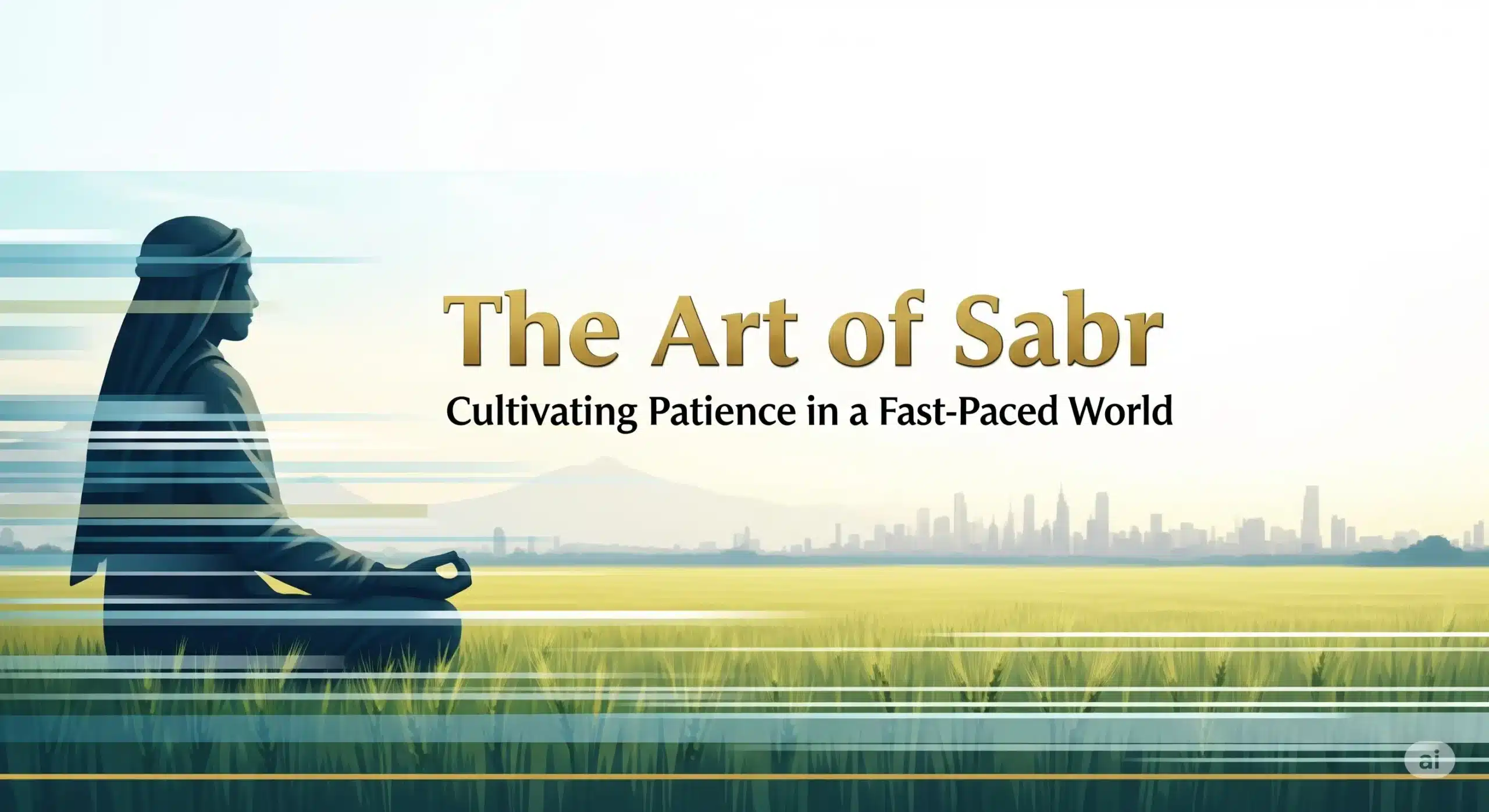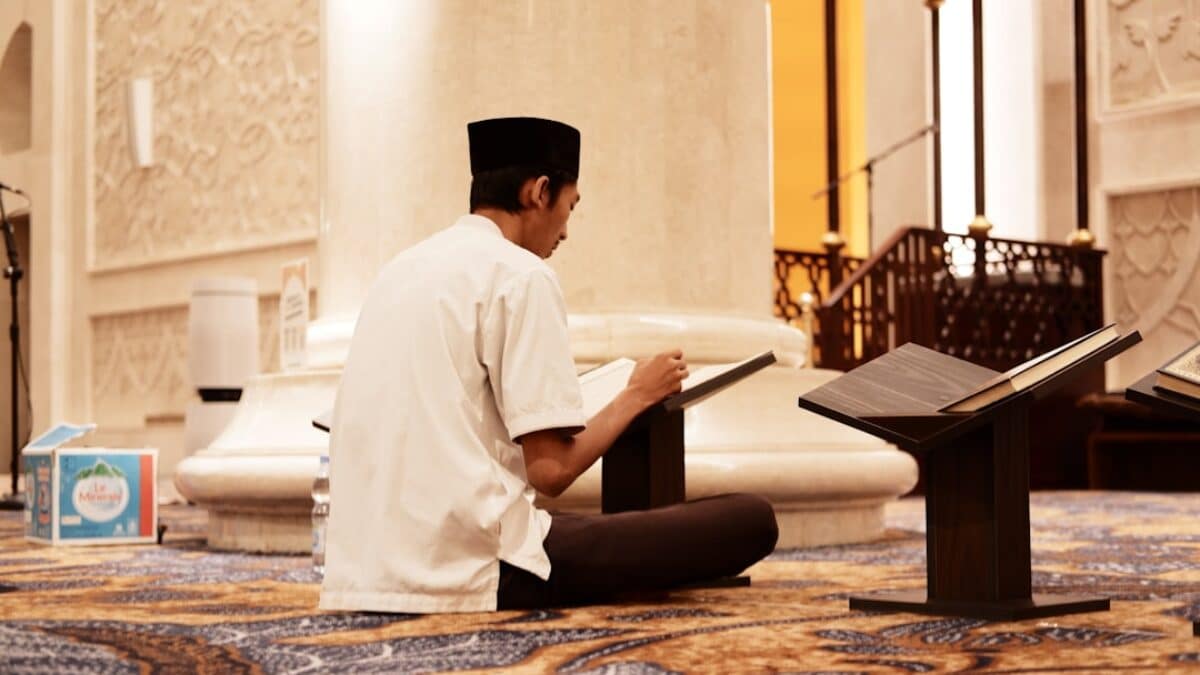In our rapidly changing world, where instant gratification has become the norm, the virtue of patience, or sabr in Arabic, is increasingly relegated to the background. However, it plays a pivotal role in personal development, emotional well-being, and building enduring relationships. This article explores the concept of sabr, its significance in Islamic teachings, practical ways to cultivate it, and how it can enhance our capabilities to navigate life’s challenges effectively.
Understanding Sabr
What is Sabr?
Sabr, commonly translated as "patience" or "perseverance," is an Arabic term that encompasses a broader spectrum of meanings, including endurance, restraint, and maintaining composure amidst adversity. In Islam, sabr is not merely the absence of annoyance or frustration; it involves active engagement and a mindful approach to life’s challenges.
According to Islamic teachings, practicing sabr is a spiritual discipline that brings individuals closer to Allah (God). The Quran emphasizes this idea multiple times, suggesting that patience is not only a virtue but also a requirement during trying times. Verses such as Surah Al-Baqarah (2:153) affirm this, stating, “O you who have believed, seek help through patience and prayer. Indeed, Allah is with the patient.”
The Quran and Hadiths (sayings of the Prophet Muhammad) provide a treasury of wisdom illustrating how sabr manifests in different contexts—whether it is dealing with loss, adversity, or striving to achieve one’s goals. By recognizing sabr as an integral part of personal growth and spiritual elevation, individuals can embrace it rather than viewing it as a hindrance.
The Historical Significance of Sabr
Examples from Islamic History
The concept of sabr is deeply rooted in Islamic history, where the lives of prophets exemplify this virtue. For instance, the story of Prophet Job (Ayyub) is often recounted as a paradigm of patience. Ayyub faced immense hardships, including severe illness and loss of wealth and family. Throughout his suffering, he remained steadfast in his faith, continually turning to Allah for support. His ultimate reward, as described in the Quran, was not merely restoration of his previous state but an even greater bounty.
Similarly, the story of the Prophet Muhammad’s life serves as a profound testament to sabr. During the early years of his mission, he faced relentless opposition, ridicule, and persecution. Yet, his patient perseverance paved the way for the establishment of a community centered around justice, compassion, and faith. These historical instances emphasize that sabr is not passive resignation but rather an active engagement with life’s challenges, fostering resilience and perseverance.
Real-World Applications of Sabr
Everyday Challenges
In today’s fast-paced world, where immediate results and quick fixes dominate our expectations, cultivating sabr can be particularly challenging. Whether it’s waiting for an important result, dealing with a difficult relationship, or facing professional setbacks, practicing sabr allows individuals to cultivate resilience.
For instance, consider the process of job hunting. It can be arduous and filled with rejections. Embracing sabr during this time means maintaining a hopeful and constructive outlook rather than succumbing to frustration and despair. Individuals can channel this patience into self-improvement—upgrading skills, networking, or pursuing additional qualifications—transforming a seemingly frustrating phase into an opportunity for personal growth.
Moreover, in relationships, sabr plays a critical role. Conflicts are inevitable, but how we respond to them can define the longevity and quality of these relationships. Practicing patience allows for thoughtful communication rather than impulsive reactions, ultimately fostering deeper mutual understanding.
Authentic Reviews from Practicing Muslims
Perspectives on Sabr in Daily Life
Many practicing Muslims have shared their experiences regarding the significance of sabr in their lives. For instance, a Muslim woman shared her struggles during her husband’s prolonged illness. Initially overwhelmed, she found solace in the concept of sabr. “It wasn’t just about enduring the waiting; it was about finding peace in prayer and self-care,” she noted. Her understanding of sabr transformed from mere patience into an active engagement with her emotional health, enabling her to support her husband better during his recovery.
Similarly, a young man reflected on his journey of navigating career challenges. He stated, “My initial rejections frustrated me. However, understanding sabr led me to reflect on my experiences and eventually adapt my strategies for job applications.” This proactive approach not only helped him secure a job but also instilled a sense of confidence that extended beyond professional boundaries.
These testimonials illustrate that sabr can be a transformative experience and is deeply embedded in the Muslim faith.
Practical Tips for Cultivating Sabr
1. Mindfulness and Reflection
Mindfulness practices can significantly enhance patience. Taking a few moments daily to meditate or reflect can help ground your thoughts and emotions. Consider journaling about your feelings when faced with frustration—this can clarify your thoughts and lead to a more patient response.
2. Set Realistic Expectations
Often, impatience stems from unrealistic expectations. By setting achievable goals and timelines, you create a more manageable approach to challenges. This adjustment allows for a natural flow, making setbacks more bearable.
3. Practice Gratitude
Focusing on gratitude can transform how you perceive waiting. By acknowledging what you have rather than fixating on what you lack, you cultivate a more patient mindset. Regularly expressing gratitude, whether through journaling or verbal affirmation, can help shift perspectives.
4. Engage in Community Support
Connecting with others who share similar challenges can be rewarding. Local Muslims or online communities can provide support and encouragement, reminding you that you are not alone in your struggles. Sharing experiences can foster resilience and patience.
5. Invoke Spirituality
For Muslims, connecting with the divine through prayer strengthens faith and can enhance patience. Regular supplication asking for sabr can remind you of its importance and the strength one derives from faith.
Frequently Asked Questions about Sabr
Q1: How can I apply sabr in my daily life?
A: Sabr can be applied in various daily situations, from handling frustrations at work to managing relationships. Practicing mindfulness, setting realistic goals, and asking for support from family and friends can facilitate this.
Q2: Is patience a sign of weakness?
A: On the contrary, sabr is often seen as a sign of strength and resilience. It requires emotional intelligence and self-control—qualities that many find difficult to master.
Q3: How can sabr improve my mental health?
A: Practicing sabr allows for emotional regulation, reducing anxiety and frustration. By focusing on patience and resilience, individuals often find themselves managing stress more effectively.
Q4: Can sabr and action go hand in hand?
A: Absolutely! Sabr does not mean passive waiting; it means maintaining patience while actively seeking solutions. The key is to remain composed and thoughtful during challenging times.
Conclusion
The art of sabr is a vital skill in today’s fast-paced world. As we continue to face challenges—both personal and societal—embracing patience can serve as a powerful tool for growth and resilience. By understanding its significance through Islamic teachings and recognizing its real-world applications, we can better navigate our lives’ complexities with grace.
In a world that often celebrates instant gratification, the mastery of sabr opens doors to deeper understanding, improved relationships, and personal fulfillment. As we cultivate this art, we weave patience into our daily lives, sparking a journey towards greater self-awareness, resilience, and spiritual growth.
























Post Comment